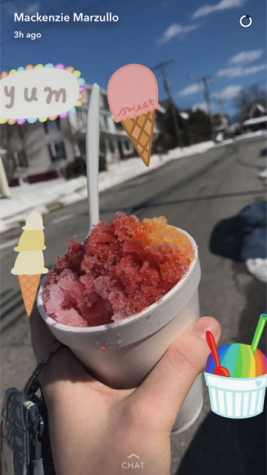Students Attend Biology Field Trip
February 9, 2015
45 students went on an anatomy field trip to the Franklin Institute and the Mutter Museum in Philadelphia on Friday, January 9.
Science teachers Barbara Nealon and Edward Bailey both helped organize this trip. Anatomy, CSI, and biochemistry students received the opportunity to experience both educational museums.
The day began at the Franklin Institute and concluded with the Mutter Museum.
At The Franklin Institute, students got to dissect organisms and fill them with plastic, a process known as plastination. By doing this, the muscle, color, and shape maintained its original form. When the muscles were filled with plastic, it was easier to dissect because it became solid and was able to be taken places so people could look at it. These experiments showed students more than they could see in a classroom due to lack of materials available.
AP biology and anatomy teacher Barbara Nealon thought this trip was very beneficial for students.
“We would stand around and talk about it, and the kids were able to see things and describe things and ask questions,” said Nealon. “As much fun as it was, it was also very educational and interesting.”
During the second part of the day, students went to the Mutter Museum, which was set up by the college of physicians of Philadelphia. Students Drew Yarbrough and Greg Stewart both agreed the Mutter Museum was the best one out of them all because they got to see new artifacts they’ve never seen before. This museum had artifacts such as preserved organisms with color-coded arteries and veins used to train doctors in the 1800s and early 1900s.
“It was really cool,” said Nealon. “We went, and they could see things we talk about in class, but… never…[see].”
Many of the students agreed that the Mutter Museum was the best of the two museums. Also, when asked what they found the most interesting, it was a pair of twins conjoined in the face.
This trip provided students with better chances to see anatomy from different perspectives.



